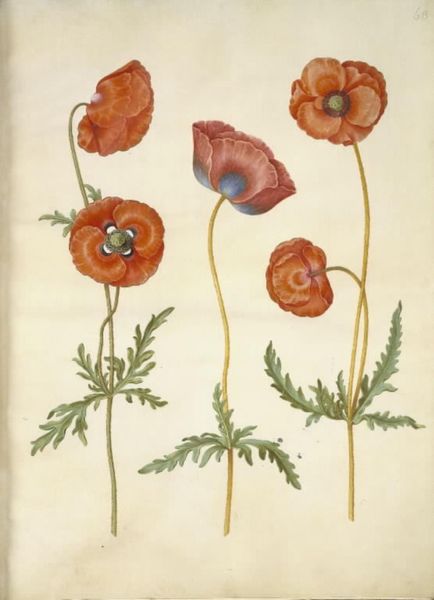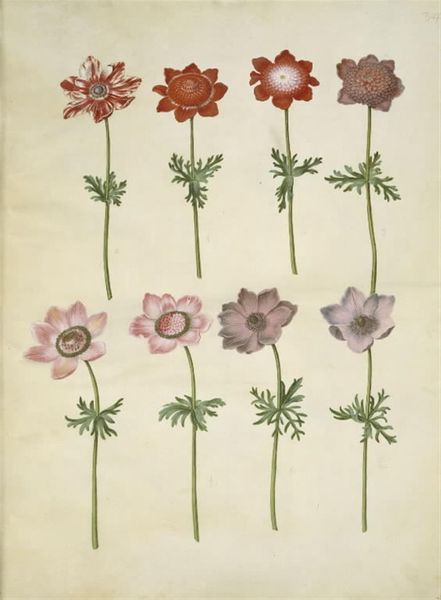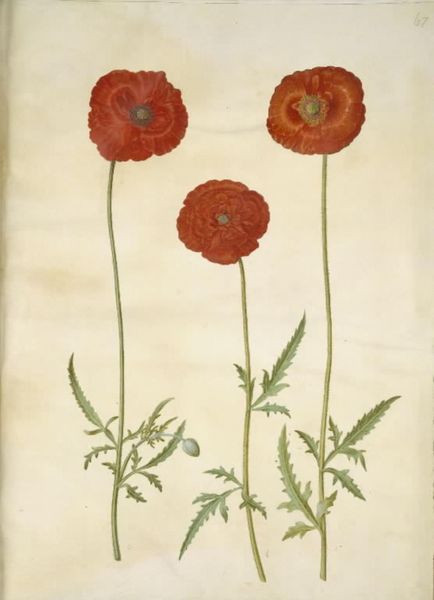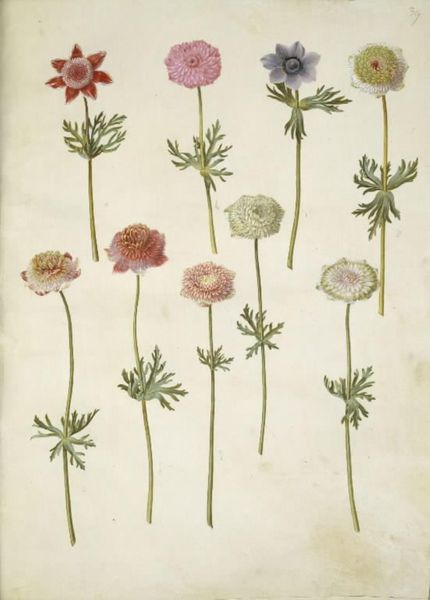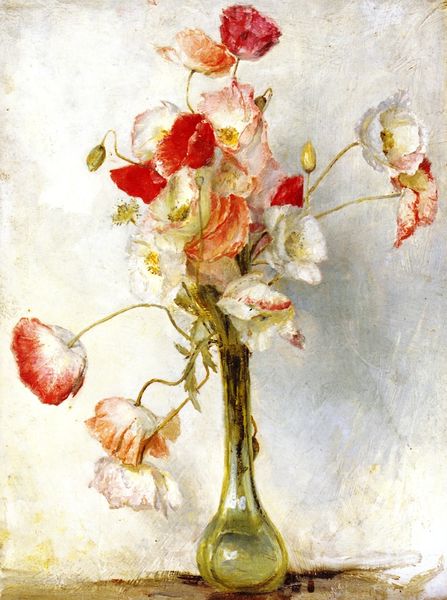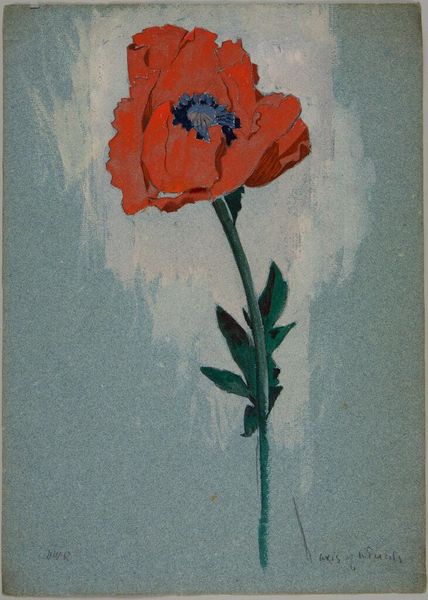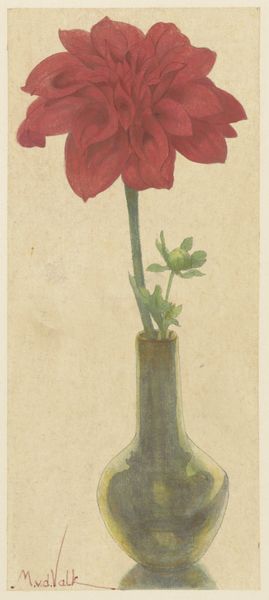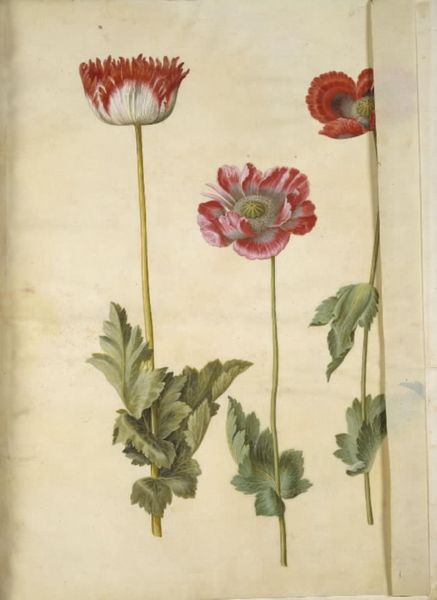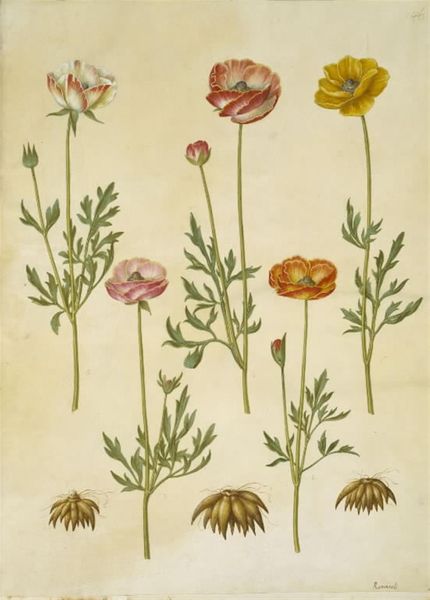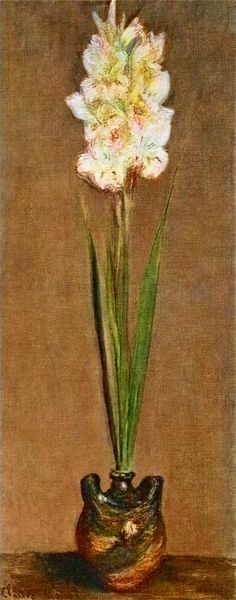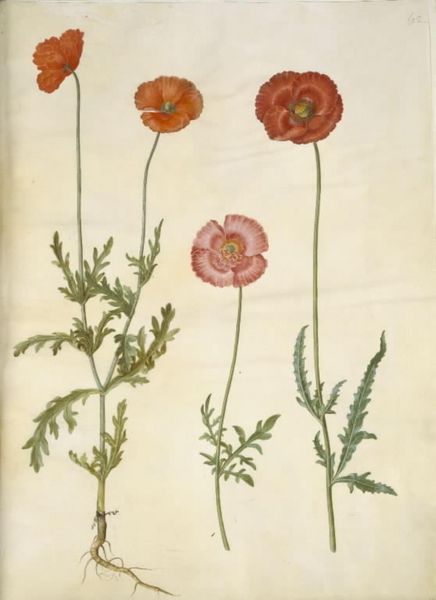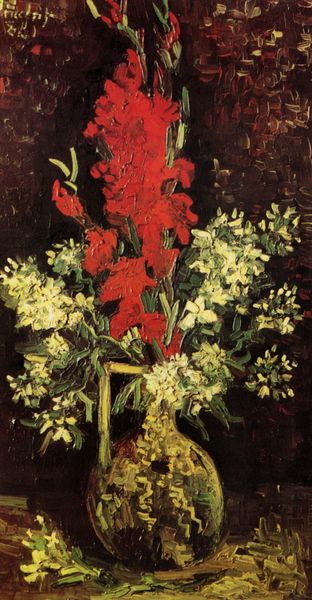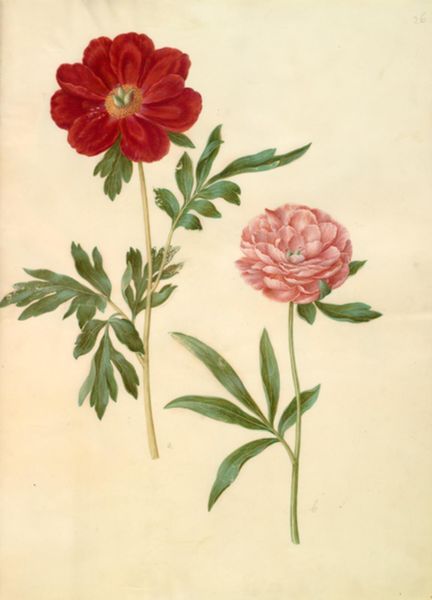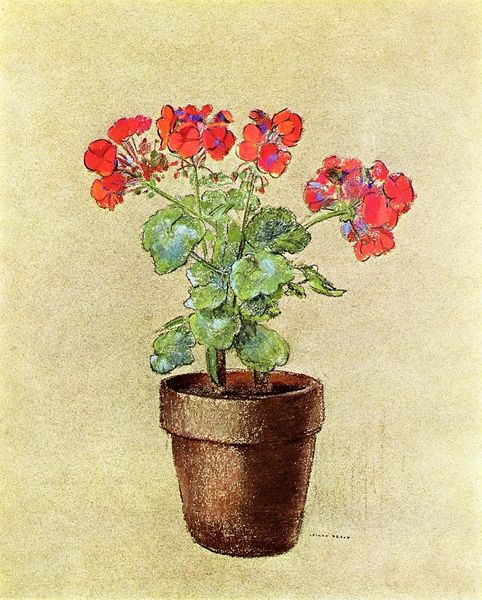
painting, oil-paint
#
painting
#
oil-paint
#
landscape
#
oil painting
#
romanticism
#
botanical art
Copyright: Public domain
Editor: Here we have John Constable's oil painting, "Study for Poppies." I'm struck by the textural contrast between the soft petals and the rough, earthy background. What do you see when you look at this study? Curator: Well, I'm immediately drawn to the materiality of the painting itself. Look at the impasto, how thickly Constable has applied the paint, particularly in the petals. It suggests a fascination with the physical properties of oil paint – its viscosity, its ability to hold light. This pushes back against traditional notions of landscape art just trying to represent nature, don't you think? It’s actively using material means to interpret it. Editor: I can see that, like he is relishing the oil paint as substance and material in its own right. How does this relate to the social context of his time? Curator: Exactly! During the early 19th century, you have a shift in the understanding of labour, accelerated by the industrial revolution. So, Constable’s focus on the handmade quality of the painting, the visible traces of the artist’s labor in applying the paint, could be seen as a quiet resistance to the mass-produced, increasingly mechanised world around him. It celebrates craft at the advent of industrial production. Editor: So, it’s less about the poppy itself and more about the act of creating, of manual labor and resisting mechanisation? Curator: Precisely! The flowers are almost a pretext. They're the object upon which Constable exercises his craft. How has this changed your initial reading? Editor: I think I appreciate now the subversiveness in choosing such a humble subject to highlight his craftsmanship. It has more complexity now than I originally saw in it. Curator: Yes, it shows a keen understanding of not only the subject matter, but its place within shifting industrial and creative economies. A perfect study of materiality and society!
Comments
No comments
Be the first to comment and join the conversation on the ultimate creative platform.
